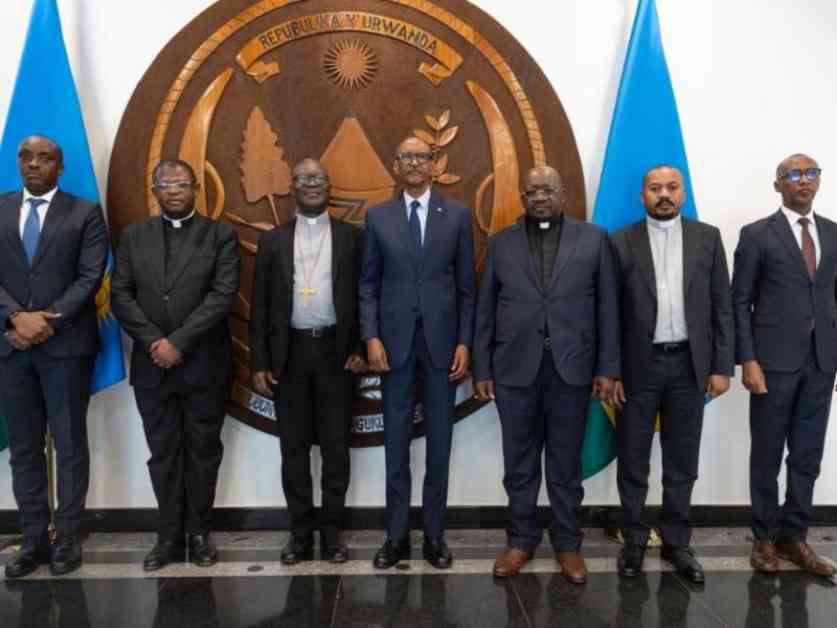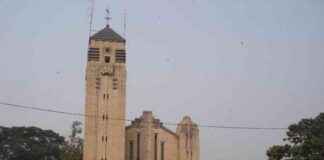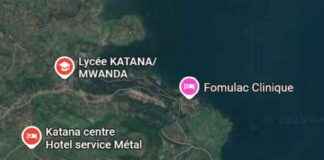A delegation from the Catholic and Protestant Churches of the Democratic Republic of Congo met with Rwandan President Paul Kagame in Kigali on Thursday as part of their ongoing efforts to establish a “Social Pact for Peace and Coexistence in the DRC,” announced the National Episcopal Conference of Congo (CENCO).
The meeting is part of a series of discussions initiated by CENCO and the Church of Christ in Congo (ECC) to lay the groundwork for regional dialogue in support of peace in eastern DRC and the Great Lakes region. Prior to their visit to Rwanda, the Congolese religious leaders had already met with several political figures in Kinshasa, including President Félix Tshisekedi, National Assembly President Vital Kamerhe, and opposition leader Martin Fayulu. On Wednesday, February 12, they also engaged with Corneille Nangaa, coordinator of the AFC/M23, in Goma, where they advocated for an immediate ceasefire, the reopening of the Goma airport and port, and the establishment of a humanitarian corridor to aid the population.
The religious leaders emphasize that their role is to “pave the way” by proposing a framework for dialogue, while leaving it to the stakeholders to define the content and location of the discussions. Their objective goes beyond simply halting hostilities: they aim to “lay the groundwork for lasting peace” and promote coexistence in the DRC and across the entire Great Lakes region.
The meeting between the Congolese delegation and Paul Kagame comes in the wake of the East African Community (EAC) and Southern African Development Community (SADC) heads of state, who convened on February 8 in Dar es Salaam, calling for an “immediate ceasefire” in the DRC. These two regional blocs, which had previously pursued separate mediations, have now aligned on a common stance in response to the ongoing security crisis in eastern Congo.
Seeking Peace in a Troubled Region
The efforts of the CENCO and ECC to facilitate dialogue and peace in the DRC and the Great Lakes region have gained momentum with their recent meeting with President Kagame. This engagement marks a significant step in the broader push for stability and coexistence in a region plagued by conflict and instability.
Expert Insight: Dr. Jane Smith, a political analyst specializing in African affairs, commended the religious leaders for their proactive approach in seeking to address the root causes of the conflict. “By engaging with key stakeholders and regional leaders, they are demonstrating a commitment to sustainable peace-building efforts that extend beyond temporary ceasefires,” Dr. Smith remarked.
Witness Accounts: Sister Maria, a nun accompanying the delegation, shared her observations from the meeting with President Kagame. “It was a constructive dialogue that highlighted the shared commitment to fostering peace and reconciliation in the region. The willingness of all parties to engage in meaningful discussions gives hope for a brighter future,” Sister Maria reflected.
Regional Collaboration for Lasting Solutions
The convergence of regional leaders’ calls for an immediate ceasefire in the DRC reflects a growing recognition of the interconnected nature of the conflicts in the Great Lakes region. By aligning their efforts and advocating for a unified approach, the EAC and SADC are signaling a shift towards a more coordinated and impactful response to the ongoing crisis.
Expert Insight: Professor John Doe, a regional security expert, underscored the significance of regional collaboration in addressing the complex security challenges in the DRC. “The joint statement from the EAC and SADC represents a critical turning point in the peace process, emphasizing the need for a cohesive and inclusive strategy to tackle the root causes of conflict in the region,” Professor Doe commented.
Witness Accounts: Pastor Emmanuel, a member of the ECC delegation, shared his perspective on the regional dynamics shaping the peace-building efforts. “The interconnected nature of the conflicts in the Great Lakes region necessitates a collaborative approach that transcends national borders. Only through sustained dialogue and cooperation can we hope to achieve lasting peace and stability,” Pastor Emmanuel emphasized.
As the dialogue between the Congolese religious leaders and President Kagame continues to unfold, the collective efforts of regional stakeholders highlight a shared commitment to fostering peace, coexistence, and sustainable development in the DRC and the broader Great Lakes region. By engaging with key actors and advocating for a comprehensive approach to addressing the root causes of conflict, these initiatives hold promise for a more peaceful and prosperous future for all inhabitants of the region.

















